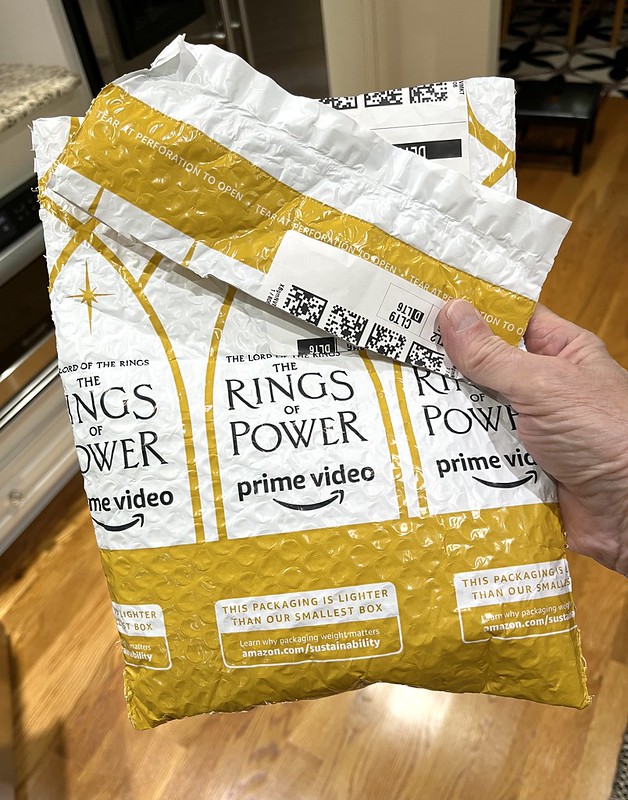Excerpt:
Trackers placed in 93 bundles of Amazon packaging marked for “store drop-off” recycling showed many of them were buried or burned.
Feeling guilty about all those blue-and-white plastic Amazon bags piling up around the house? Fear not — they can be recycled! At least, that’s what the packaging says.
For years now, Amazon’s plastic bags, bubble-lined mailers, and air pillows have featured the ubiquitous “chasing arrows” recycling symbol along with the words “store drop-off.” The idea is simple: Since most curbside recycling programs don’t accept this type of plastic — it’s too expensive to process and can clog machines — consumers can instead leave it at retail stores across the country. From there, this plastic, known as “film,” will go to a specialized facility and be turned into new products.
The problem, however, is that the system doesn’t seem to be working.
An investigation published Tuesday by the nonprofits Environment America and U.S. Public Interest Research Group, or U.S. PIRG, suggests that only a small fraction of Amazon’s plastic packaging makes it to a material recovery facility, the term for operations that sort glass, metal, plastic, and other items for recycling. The packaging is much more likely to end up in a landfill, incinerator, export terminal, or in the hands of a company that downcycles plastic film into things like benches.
The report adds to a growing body of evidence suggesting that store drop-off programs are an ineffective solution to the escalating plastic pollution crisis. According to environmental groups, these programs help justify the ongoing production of single-use plastic, helping manufacturers and retailers evade accountability while alleviating consumer guilt.
“The store drop-off system is really not working, and plastic film is not recyclable,” said Jenn Engstrom, state director of U.S. PIRG’s California chapter and a co-author of the report.
To find out what happens to Amazon’s plastic packaging, U.S. PIRG and Environment America attached small tracking devices — mostly Apple AirTags — to 93 bundles of Amazon plastic packaging marked for store drop-off and deposited them at retailers in 10 states. These stores, which were listed in an online directory, included mostly supermarkets like Safeway, Sprouts, Publix, Fred Meyer, QFC, and Whole Foods, although some bundles were placed at outlets like Kohl’s or Home Depot.
The report authors were able to determine the fate of about half the bundles, since, as expected, many of the trackers likely died before reaching a final destination. Of those that survived, 13 went to a landfill, two went to a waste incinerator, and three went to the Port of Los Angeles, suggesting that the bundles were destined for processing or disposal overseas.
Only four trackers eventually made their way to a material recovery facility that sorts plastics for recycling. U.S. PIRG and Environment America said they were able to contact three of those facilities: Two specifically said they do not accept Amazon packaging, and the third said it accepts only paper and cardboard.
Two dozen trackers ended up in the hands of Trex, a company that makes benches and decking out of discarded plastic. But U.S. PIRG and Environment America question whether Trex is using Amazon packaging in its products; the contents of store drop-off bins are often littered with food and beverages, likely rendering this plastic too contaminated to use in manufacturing.
Trex did not respond to Grist’s request for comment, but a similar company reports getting 70 to 80 percent of its plastic from “back-of-the-house shrink wrap,” referring to the material wrapped around shipping pallets, which tends to be cleaner than postconsumer plastic. Meanwhile, a Trex executive told Bloomberg News last year that there is not enough demand for recycled material to make store drop-off successful.
“All the claims the companies are making are just greenwashing,” he told Bloomberg. “Recycling’s failed…”









